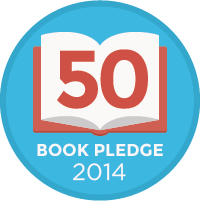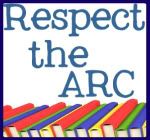Title: The Road
Author: Cormac McCarthy
Published: 2007
Publisher: Vintage International
Number of Pages: 287
The searing, postapocalyptic novel destined to become Cormac McCarthy's masterpiece.A father and his son walk alone through burned America. Nothing moves in the ravaged landscape save the ash on the wind. It is cold enough to crack stones, and when the snow falls it is gray. The sky is dark. Their destination is the coast, although they don't know what, if anything, awaits them there. They have nothing; just a pistol to defend themselves against the lawless bands that stalk the road, the clothes they are wearing, a cart of scavenged food-—and each other. The Road is the profoundly moving story of a journey. It boldly imagines a future in which no hope remains, but in which the father and his son, "each the other's world entire," are sustained by love. Awesome in the totality of its vision, it is an unflinching meditation on the worst and the best that we are capable of: ultimate destructiveness, desperate tenacity, and the tenderness that keeps two people alive in the face of total devastation.
You can read the first and last lines of this book at firstandlastlines blog.
The Road takes place at a time when the world has pretty much ended and everything's turned to ash. Everything in the book is just gray. The main characters are a father and a son: we never learn their names, and I'm glad we don't because what's the point if there are only few people and nothing else left in the world? Even when they were nameless, I felt their pain. I wanted to jump inside the book, and even if I couldn't save them, I wanted to at least feed them all the food I had in the house.
It's a dark, very dark book that scared me and brought me to tears. Even though I did see certain things coming and was waiting for them, I literally broke down in tears when they finally happened. I had to wait for a week to watch the movie because I honestly didn't want to put myself through that, and when I finally saw it, I realized the book is much better. The movie's very close to the book, and I think they did an amazing job creating that gray world and everything else, but it's something about McCarthy's story telling and choice of words that hit a nerve.
So... The story is about the boy and his father trying to survive in what you see in the above screencap. They're trying to go South to get to the water, and on their journey, they see a lot of things I don't want to ever see in my lifetime. Food is very scarce, which has led to cannibalism, which gives them more of a reason not to trust anybody. They can't stay in one place for too long because whenever a person runs into another, someone tends to die. The screencap below is among the "good things" they come across, so you get my point...
The things The Road made me question made me very uneasy. If there's a god, why would he do something like this? If there's nothing to live for, why do you fight so hard to stay alive? Having only two bullets in your gun, can you shoot your son / father / whomever when the time comes and it's necessary? Should you wait 'till something happens to do it, or should you just get it over with and put yourself and your loved one out of misery? I kept trying to think what I would do, and I honestly haven't a clue. Having diabetes and all, I'd probably be among the first ones to die. But if that's the case, do you die with relief or regret, knowing what your loved ones will have to suffer?
I also found myself trying to decide whether the situation was worse for the boy or the father. Being so young and all, he hasn't seen and lived half the things the man had. It felt like it was the boy's first time seeing the water. He was very excited when they finally got to it, but then: "Out there was the gray beach with the slow combers rolling dull and leaden and the distant sound of it. Like the desolation of some alien sea breaking on the shores of a world unheard of. Out on the tidal flats lay a tanker half green. Beyond the ocean vast and cold and shifting heavily like a slowly heaving vat of slag and then the gray squall line of ash. He looked at the boy. He could see disappointment in his face. I'm sorry it's not blue, he said. That's okay, said the boy."
How exactly does on handle seeing disappointment on this cute face? And how disappointed would you be if you walked for years trying to get to the ocean and the damn thing isn't even blue?!
This is by far one of the depressing books I've ever read. It's also one of the most amazing books I've ever read. Even though it's filled with sorrow, it also has a lot of hope and love. And who knows where you might end up if you keep "carrying the fire in your heart?"
*****
The only thing I didn't understand is the interesting punctuation. Is this a style or something that I don't know about? It was obviously done knowingly, but I can't understand why.
































No comments:
Post a Comment